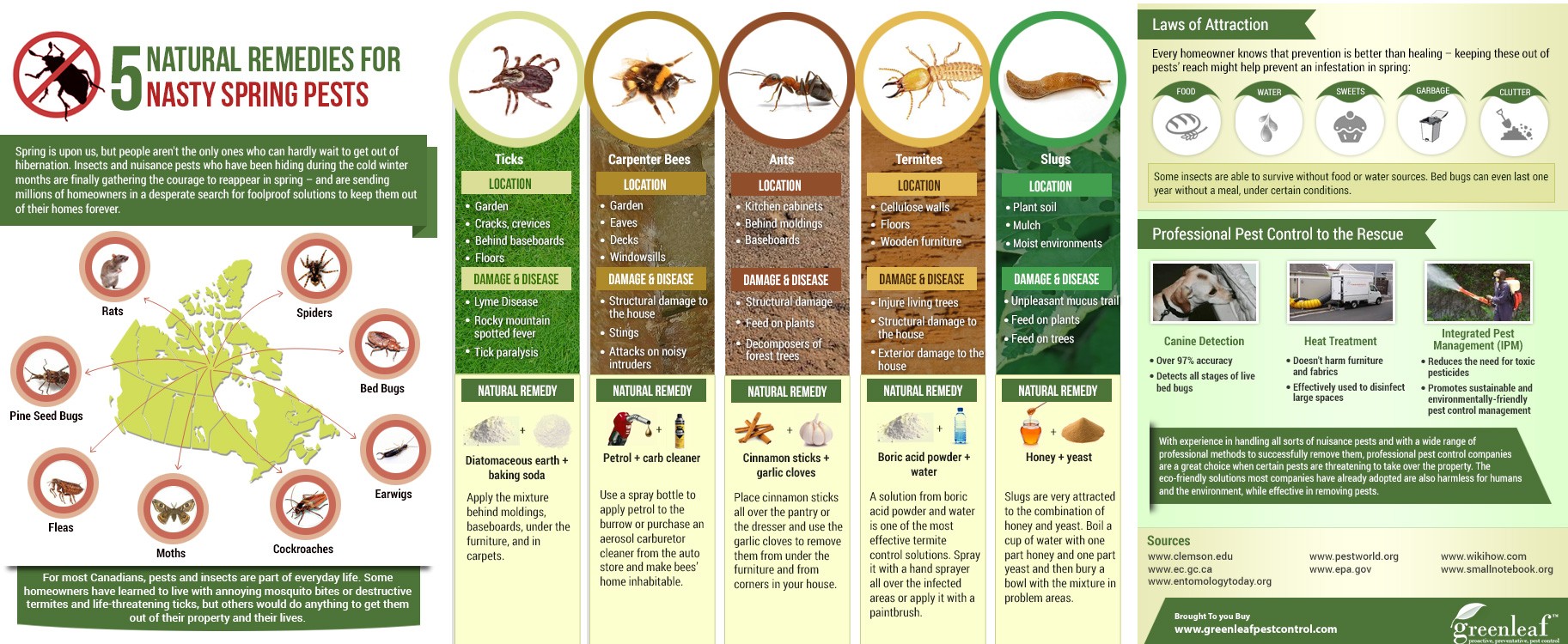Pest-Proofing Your Yard: Tips For Keeping Outside Insects Away
Pest-Proofing Your Yard: Tips For Keeping Outside Insects Away
Blog Article
Content By-Lambertsen Espersen
Envision your garden as a sanctuary, an area of harmony and beauty. Nonetheless, best bed bug exterminator of outside parasites can quickly disrupt this idyllic picture. Suppose there were basic yet effective methods to maintain these unwanted site visitors at bay and secure your garden oasis? By complying with https://how-to-remove-snake-from95172.get-blogging.com/27574530/sly-termites-might-be-causing-quiet-mayhem-in-your-home-discover-the-subtle-signs-prior-to-it-s-far-too-late of useful pointers and applying all-natural strategies, you can create a harmonious outdoor space where your plants can grow uninterrupted.
Natural Parasite Deterrents
To keep pests away from your yard naturally, plant fragrant natural herbs like mint and lavender. These great smelling plants not just add beauty to your garden but likewise function as efficient insect deterrents. Parasites like mosquitoes, flies, and even some garden-damaging pests are driven away by the strong aromas sent out by these herbs. Just positioning them strategically around your yard can assist create a natural barrier against unwanted bugs.
In addition to mint and lavender, consider growing various other natural herbs like rosemary, basil, and lemongrass to better boost your garden's pest-proofing capabilities. These herbs not just work as natural repellents but also have the added benefit of working in cooking or crafting home made remedies.
Strategic Plant Positioning
Think about the layout of your garden and the sorts of plants you need to strategically position them for maximum pest-proofing effectiveness.
Start by organizing plants with similar resistance to bugs with each other. By doing this, you can create a natural obstacle that deters pests from spreading out throughout your yard.
In addition, placing pest-repelling plants like marigolds, lavender, or mint near more at risk plants can help safeguard them. High plants, such as sunflowers or corn, can work as a guard for much shorter plants against pests like rabbits or ground-dwelling pests.
Bear in mind to leave adequate room in between plants to boost air flow and minimize the danger of illness that pests may bring.
In addition, think about planting strong-smelling herbs like rosemary or basil near prone plants to confuse bugs' senses and make it harder for them to situate their targets.
Efficient Insect Control Approaches
For combating yard pests efficiently, carrying out a multi-faceted bug control technique is vital. Begin by urging natural predators like birds, ladybugs, and praying mantises to assist keep insect populaces in check. Presenting mosquito insecticide that attract these helpful insects can aid in bug control. Additionally, exercising good yard hygiene by getting rid of particles and weeds where parasites may conceal can make your yard much less friendly to undesirable site visitors.
Consider using physical obstacles such as row cover materials or netting to safeguard prone plants from pests like caterpillars and birds. Using organic chemicals like neem oil or insecticidal soap can likewise work against certain parasites while being less harmful to valuable insects and the setting. https://abc7ny.com/berlin-lion-wild-animal-on-the-loose-escaped-germany/13525138/ to rotate your crops each period to avoid the build-up of insect populaces that target details plants.
Regularly evaluate your plants for indicators of insect damage so you can act quickly. By combining these approaches and remaining cautious, you can properly manage garden pests and appreciate a thriving, pest-free yard.
Verdict
So, there you have it - with the right methods, you can maintain pesky outside bugs away from your garden and aid your plants prosper.
Did you recognize that planting mint has been shown to fend off mosquitoes and various other insects, minimizing the requirement for harmful chemicals by approximately 60%?
By integrating all-natural deterrents and clever growing techniques, you can develop a beautiful and pest-resistant garden sanctuary for you to enjoy.
